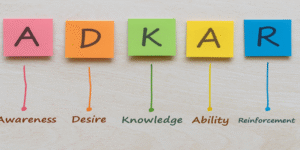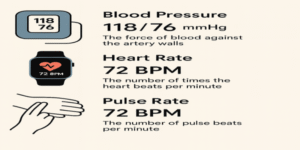Happiness has long been a subject of interest within the field of psychology. Numerous studies have attempted to decode the habits and behaviours that contribute to a person’s overall sense of well-being and contentment. This article examines into six habits often observed among happy people: not showing off, talking less, learning daily, helping the less fortunate, laughing more, and ignoring nonsense. Each of these habits aligns with various principles of positive psychology, a branch of psychology that focuses on strengths, virtues, and factors that contribute to a fulfilling life.
1.0 Don’t Show Off
The notion of modesty and humility as a path to happiness is well-documented. Showing off, or ostentatious behaviour, often stems from a desire for external validation and can lead to feelings of insecurity and comparison. Lyubomirsky (2008) suggests that individuals who do not seek to show off are more likely to derive their self-worth from intrinsic sources, such as personal achievements and relationships, rather than external accolades. This intrinsic orientation promotes a stable sense of self and overall happiness.
2.0 Talk Less
Talking less is associated with mindfulness and the practice of active listening. Research by Brown and Ryan (2003) on mindfulness indicates that being present and attentive in conversations can enhance interpersonal relationships and increase emotional intelligence. Talking less allows individuals to listen more, fostering deeper connections and understanding with others, which are crucial components of happiness.
3.0 Learn Daily
Continuous learning is a critical component of self-improvement and personal growth. According to Dweck (2006), adopting a growth mindset, where one views abilities and intelligence as improvable, leads to greater motivation and achievement. Lifelong learning keeps the mind active, fosters creativity, and provides a sense of accomplishment, all of which contribute to happiness. Moreover, Csikszentmihalyi’s (1990) concept of “flow” suggests that engaging in challenging activities that require skill and concentration can lead to deep enjoyment and fulfilment.
4.0 Help Less Fortunate
Acts of kindness and helping others have been shown to significantly boost happiness. Seligman (2011) discusses the concept of “positive psychology” and emphasises that altruism and prosocial behaviour can enhance one’s sense of purpose and satisfaction. Engaging in activities that help the less fortunate not only benefits the recipients but also provides the giver with a sense of connection and contribution to the greater good, which are essential elements of a happy life.
5.0 Laugh More
Laughter is often cited as a natural remedy for stress and a booster of overall well-being. Fredrickson’s (2004) broaden-and-build theory of positive emotions suggests that laughter and joy expand our awareness and encourage novel, varied, and exploratory thoughts and actions. Regular laughter can improve mood, reduce anxiety, and foster social bonds, all of which are vital for happiness.
6.0 Ignore Nonsense
Ignoring nonsense refers to the ability to filter out trivial or negative distractions that do not contribute to one’s well-being. This habit aligns with the concept of emotional regulation, which Gross (2002) defines as the ability to influence which emotions we have, when we have them, and how we experience and express these emotions. By focusing on what truly matters and dismissing inconsequential distractions, individuals can maintain a positive outlook and reduce stress, leading to greater happiness.
The six habits of happy people highlighted in this article—modesty, mindful communication, continuous learning, altruism, laughter, and emotional regulation—reflect key principles of positive psychology. By integrating these habits into daily life, individuals can enhance their well-being and foster a more fulfilling existence. Future research could explore the interconnections between these habits and how they collectively contribute to long-term happiness.
References
Brown, K. W., & Ryan, R. M. (2003) “The Benefits of Being Present: Mindfulness and Its Role in Psychological Well-Being”. Journal of Personality and Social Psychology. 84(4), pp. 822-848.
Csikszentmihalyi, M. (1990) Flow: The Psychology of Optimal Experience. New York: Harper & Row.
Dweck, C. S. (2006) Mindset: The New Psychology of Success. New York: Random House.
Fredrickson, B. L. (2004) “The Broaden-and-Build Theory of Positive Emotions”. Philosophical Transactions of the Royal Society B: Biological Sciences, 359(1449), pp. 1367-1377.
Gross, J. J. (2002) “Emotion Regulation: Affective, Cognitive, and Social Consequences”. Psychophysiology. 39(3), pp. 281-291.
Lyubomirsky, S. (2008) The How of Happiness: A Scientific Approach to Getting the Life You Want. New York: Penguin Press.
Seligman, M. E. P. (2011) Flourish: A Visionary New Understanding of Happiness and Well-being. New York: Free Press.









